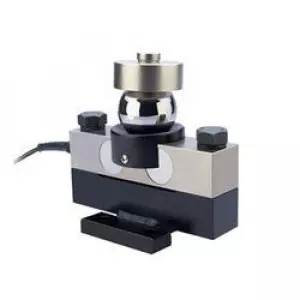Load Cell For Weighing Scale Project
Details of ST110
50kg Load Cell and Its Industrial Importance 2026
As demands for accurate and repeatable measurements continue to increase across the engineering and manufacturing sectors, load cells in this capacity range have become an essential component. At Sensor Techniques, we prepare load cell solutions that focus on reliability, stability, and long-term performance for varied operational units.
How a 50kg Load Cell Works
This transformation allows the load cell to convert physical load or weight into digital values used in controllers, indicators, and automation systems. The internal construction is designed to maintain accuracy even under continuous cycling, ensuring consistent output throughout its service life.
Applications of a 50kg Cell
This capacity is ideal for compact weighing setups and controlled force measurement tasks. Industries commonly use 50kg load cells in bench scales, hopper systems, material dosing plants, filling lines, R&D testing equipment, and laboratory instruments. Their stable performance and easy integration make them suitable for both industrial and commercial applications requiring precision.
Features of a Load Cell
- High measurement accuracy for light-to-medium loads
- Robust construction to ensure long-term stability
- Compact design suitable for limited-space installations
- Temperature-compensated output for reliable readings
- Easy integration with indicators, PLCs, and automation units
Importance of Quality in Load Cell Manufacturing
At Sensor Techniques, the focus remains on ensuring each load cell performs reliably under varying operational conditions. Manufacturing includes controlled processes, calibrated testing, and quality checks to maintain precision across multiple usage cycles.
This setup is commonly used in table-top scales, material dosing systems, automation equipment, agricultural measuring units, DIY project scales, smart weighing devices, packaging machinery, and research labs. Because of its compact size and high resolution, it is ideal for applications where consistent and low-noise readings are required.
Why This Combination Is Popular
The 50kg load cell and HX711 combination offers a perfect balance of accuracy, affordability, and ease of use. It allows both beginners and professionals to build high-precision weighing systems without needing expensive instrumentation amplifiers or complex circuitry. Its compatibility with multiple microcontroller platforms also makes it versatile across different industries.
Load Cell Value Fluctuation with Arduino Mini
Understanding the root causes of fluctuation is essential for achieving reliable and accurate measurements in weighing or force-monitoring systems.
Improving Stability in Load Cell Readings
- Use a stable and regulated power supply for both the Arduino Mini and HX711
- Keep load cell wiring short, twisted, and properly shielded to reduce electrical interference
- Ensure solid mounting without side load or vibration on the load cell assembly
- Add filtering techniques such as moving average or exponential smoothing in the code
- Allow a warm-up period for the electronics to stabilize before taking measurements
Software Filtering on Arduino Mini
With good hardware conditions, applying basic software filtering improves reading stability. Exponential smoothing offers steady results without requiring much memory. Combining these methods produces a more reliable and consistent output suitable for real-time applications.

